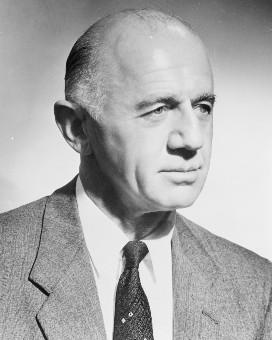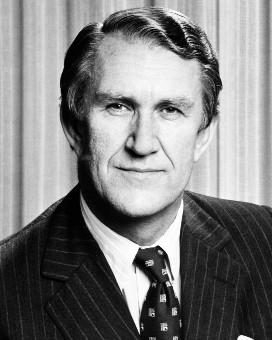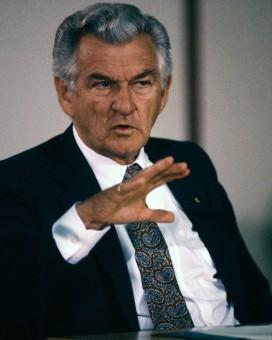On this page
From 1972 to 1975, Margaret Whitlam was an outspoken prime ministerial spouse, a frequent guest speaker, broadcaster and columnist. She accompanied Edward Gough Whitlam on his extensive travels, including visits to China, Japan, India, North America and Europe.
Mrs Whitlam served on the International Women's Year Advisory Committee from 1974 to 1975. After the dismissal of the Whitlam government, she served on many public bodies. In the 1990s, she was honoured by the National Trust of Australia as a National Living Treasure. She died in March 2012, at the age of 92.
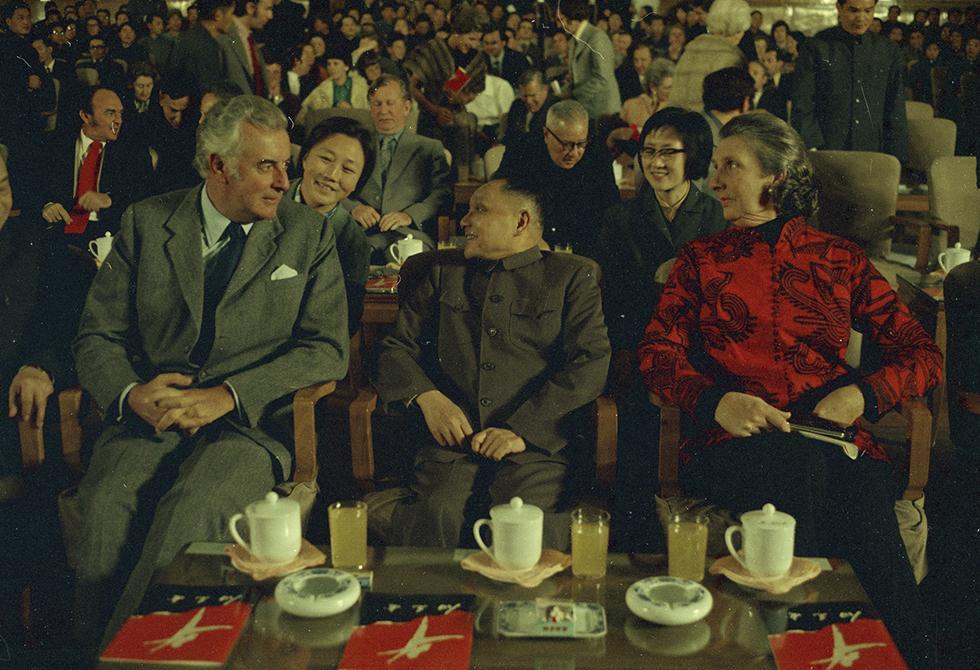
Margaret and Gough Whitlam with Deputy Premier of China, Deng Xiaoping, 1973. NAA: A8746, KN15/11/73/70
A political wife
Mrs Whitlam was a prime ministerial spouse for 3 years, from 1972 to 1975. She was a political wife from the beginning of her marriage to Whitlam in April 1942. Both were interested in politics. Both supported the government of John Curtin at the 1943 election, and the referendum on post-war reconstruction and democratic rights a year later. Mrs Whitlam sent Whitlam the campaign materials for the election and the referendum that he distributed while stationed with his Royal Australian Air Force (RAAF) squadron at a remote base in northern Australia.
A swimming champion, Mrs Whitlam represented Australia at the 3rd Empire Games, held in Sydney in 1938. 10 years later, after her marriage and the birth of the couple’s 2 younger sons, she graduated in social studies from the University of Sydney. After Whitlam was elected to parliament in 1952, her work in the electorate intensified, including attendance at balls, fetes, sporting carnivals and church services, as well as party meetings. There were also the duties in Canberra. Mrs Whitlam attended every opening of parliament and the associated events. She was also an active member of the Labor Party Women’s Conference.
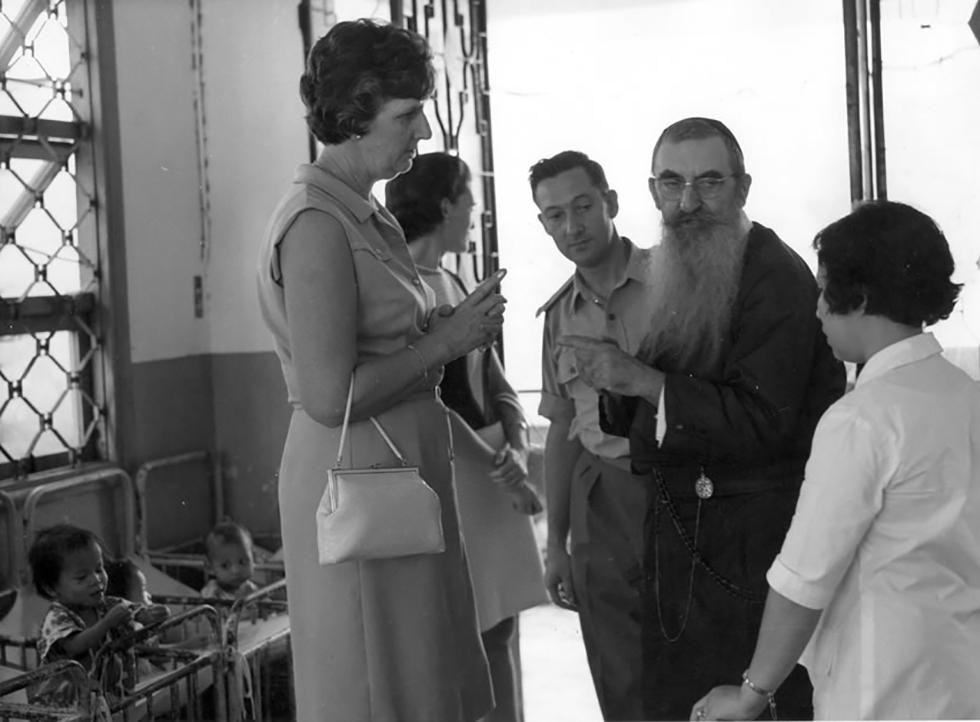
Margaret Whitlam visiting the Don Chua orphanage in Saigon, Vietnam, January 1968. NAA: M155, B11
Mrs Whitlam took a job as a social worker at Parramatta District Hospital from 1964 to 1967, when Whitlam became Leader of the Opposition. Her political work increased with his and, in January 1968 when John Gorton became Prime Minister after the death of Harold Holt, they made an official trip to South-East Asia. Mrs Whitlam’s duties on the trip included visiting schools, hospitals and orphanages in the South Vietnamese capital Saigon.
A prime ministerial spouse
When Whitlam became Prime Minister on 5 December 1972, Mrs Whitlam soon gained public attention as an outspoken prime ministerial wife. She spoke frankly about the ambiguous role, undefined duties and loss of a separate identity. She wrote in her diary in December 1972, ‘What am I to do? Stay in a cage – wide open to view, of course – and say nothing? That’s not on but if I can do some good I’ll certainly try’.
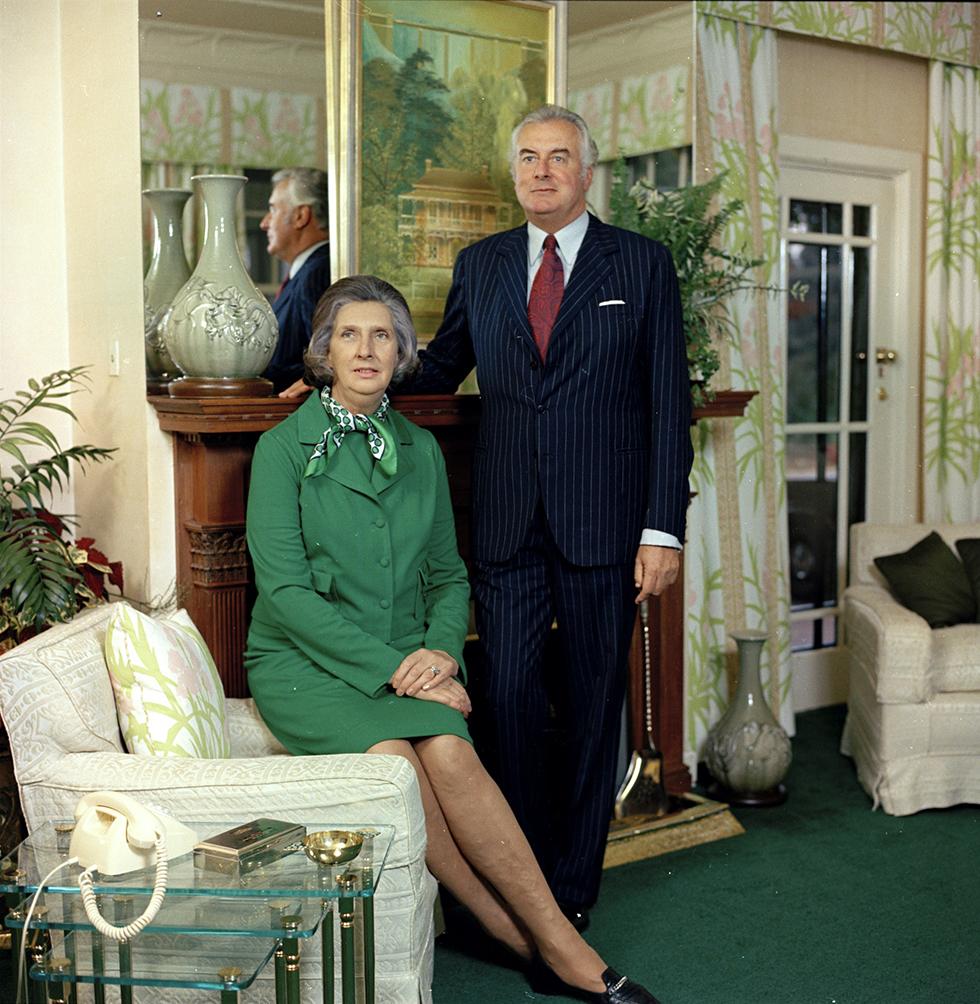
Margaret and Gough Whitlam at The Lodge, May 1974. NAA: A8746, KN23/5/74/68
As prime ministerial spouse, she became a frequent guest speaker, including on radio and television. In the years leading up to the 1972 election, Mrs Whitlam had been a panellist on the popular television program Beauty and the Beast. She also contributed a regular column to the magazine Woman’s Day from 1973 to 1975, through which readers were offered insights into the working life of the wife of the head of government. Her speeches, interviews and articles publicised women’s rights, conservation, and the issues and experiences gained in her own professional life.
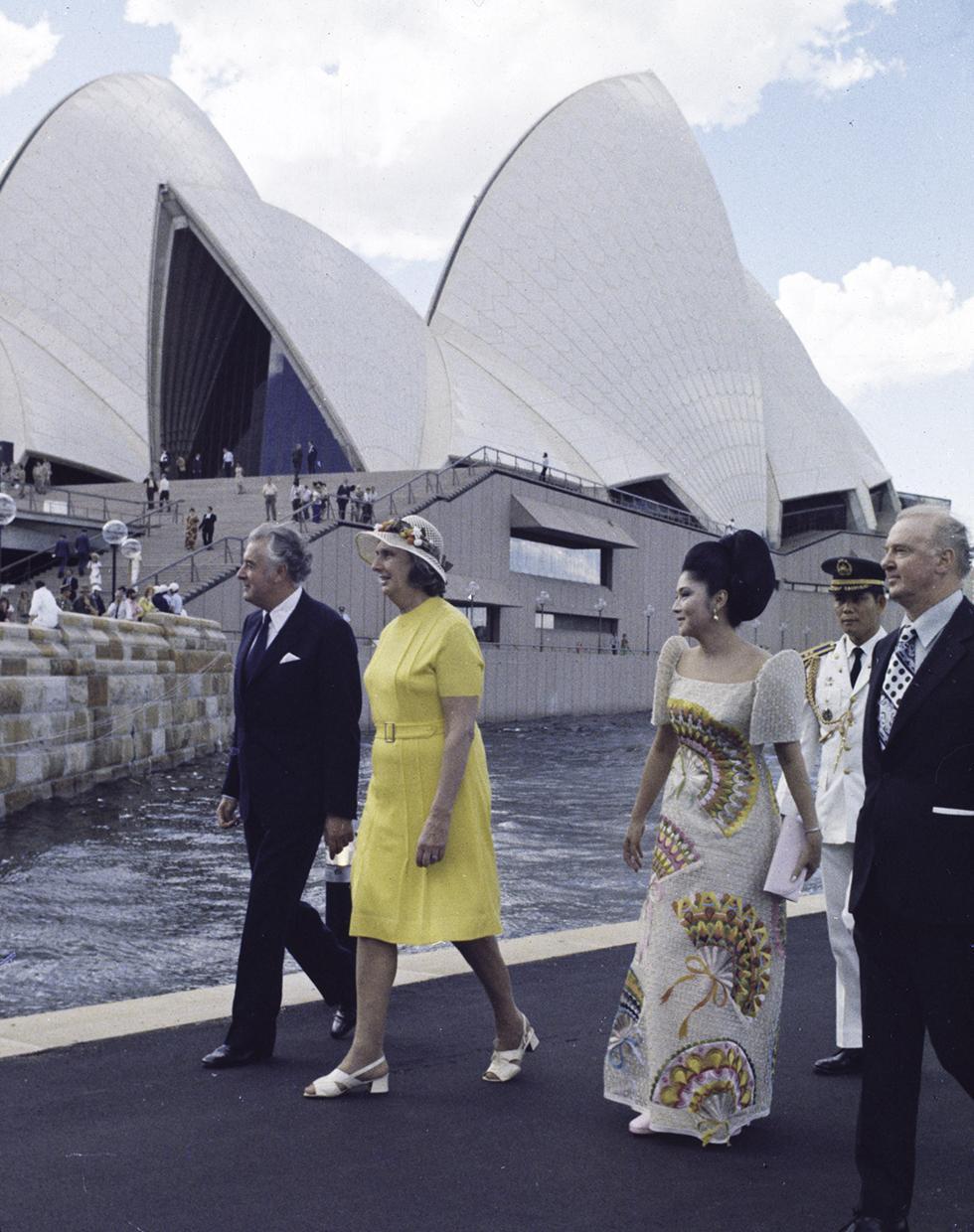
Margaret and Gough Whitlam with the Philippines ‘First Lady’, Imelda Marcos, at the Sydney Opera House during the visit of President Ferdinand Marcos and Mrs Marcos, October 1973. NAA: A6135, K26/10/73/26
Mrs Whitlam accompanied Whitlam on his extensive travels, including visits to China, Japan, India, North America and Europe. At The Lodge, she arranged and hosted many official events, including a royal lunch in the garden during the 1973 visit to Australia of Queen Elizabeth II. Official visitors to The Lodge during the Whitlams’ term included Chief Minister of Papua New Guinea, Michael Somare, and feminist author, Germaine Greer.
Mrs Whitlam served on the International Women’s Year Advisory Committee from 1974 to 1975, and helped to determine the distribution of project funding. A much admired public figure, she continued her public career after the dismissal of the Whitlam government in 1975.
She served on governing or advisory bodies of the Sydney Dance Company, Sydney Teachers’ College, Sydney College of Advanced Education, Law Foundation of New South Wales, ACT Council of Social Service, National Opera Conference, Australian Opera, Musica Viva, International Women’s Year, International Literacy Year, College of Seniors, Microsurgery Research Council and the Australia–Ireland Council.
From 1983 to 1986, the Whitlams lived in Paris, after the Hawke government appointed Whitlam Ambassador to the United Nations Educational, Scientific and Cultural Organization (UNESCO). In 1983, Mrs Whitlam received the Order of Australia. At the Australian Labor Party national conference in April 2007, the Whitlams were made national life members of the party they had both belonged to for over 60 years.
Sources
- Langmore, Diane, The Prime Ministers’ Wives: The Public and Private Lives of Ten Australian Women, McPhee Gribble, Melbourne, 1992.
- Mitchell, Susan, Margaret Whitlam: A Biography, Random House Australia, Sydney, 2006.
- Whitlam, Margaret, My Day, Collins, Sydney, 1973.
- Whitlam, Margaret, My Other World, Allen & Unwin, Sydney, 2001.


